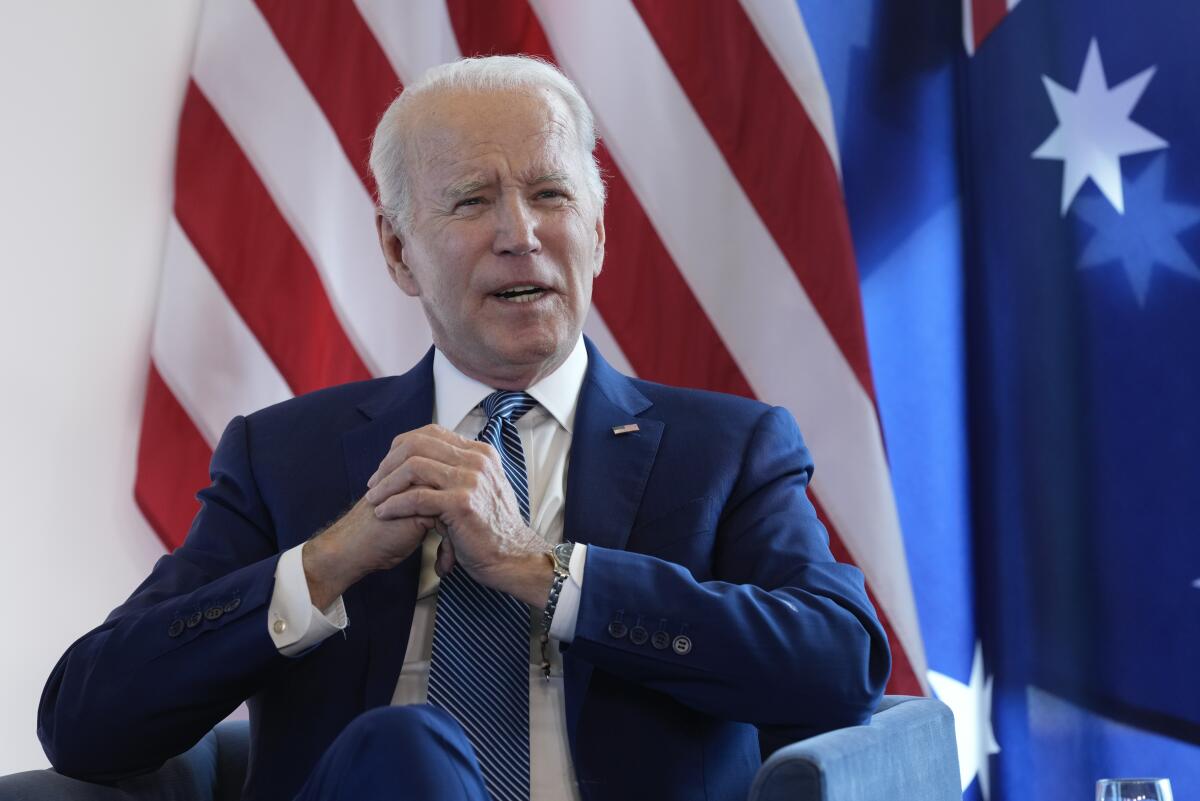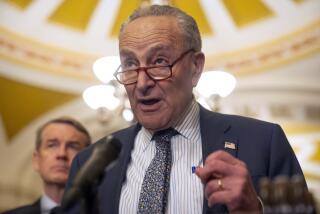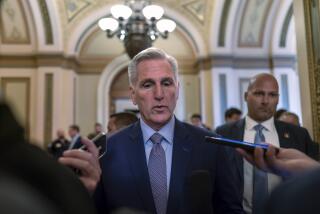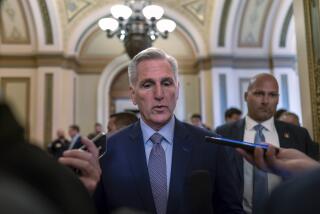Debt limit talks seem to make little headway as Biden, world leaders watch from afar for progress

WASHINGTON — Debt limit talks between the White House and House Republicans stopped, started and stopped again heading into the weekend, as President Biden and other world leaders watched from afar, hoping high-stakes negotiations would make progress on avoiding a potentially catastrophic federal default.
In a sign of a renewed bargaining session, food was brought to the negotiating room at the Capitol on Saturday morning, only to be carted away hours later. No meeting was likely to have been held Saturday, according to a person familiar with the talks who was not authorized to publicly discuss the situation and spoke on condition of anonymity.
Biden’s administration is reaching for a deal with Republicans led by House Speaker Kevin McCarthy (R-Bakersfield). The sides are up against a deadline as soon as June 1 to raise the borrowing limit, now at $31 trillion, so the government can keep paying the nation’s bills. The Republicans are demanding steep cuts in future spending that Democrats oppose, while threatening not to raise the debt ceiling, which applies to previous spending.
Talks came to an abrupt standstill Friday morning when McCarthy said it was time to “pause” talks. The teams reconvened in the evening, only to quickly call it quits for the night.
Biden, attending a meeting of global leaders in Japan, tried to reassure them Saturday that the United States would not default — a scenario that would rattle the world economy. He said he believed there was headway in the negotiations.
The political divide affecting the United States is hitting hard in Oregon, where there once was bipartisan trust.
“The first meetings weren’t all that progressive, the second ones were, the third one was,” Biden said, adding that he thinks “we’ll be able to avoid a default, and we’ll get something decent done.”
Negotiators for McCarthy said after the Friday evening session that they were uncertain on next steps.
“We reengaged, had a very, very candid discussion, talking about where we are, talking about where things need to be, what’s reasonably acceptable,” said Rep. Garret Graves (R-La.).
Rep. Patrick T. McHenry (R-N.C.), when asked if he was confident an agreement over budget issues could be reached with the White House, replied, “No.”
As the White House team left the nighttime session, Biden counselor Steve Ricchetti, who is leading talks for the Democrats, said he was hopeful. “We’re going to keep working,” he said.
McCarthy had said a resolution to the standoff is “easy,” if only Biden’s team would agree to some spending cuts Republicans are demanding. The biggest impasse is over the fiscal 2024 top-line budget amount, according to a person briefed on the talks and granted anonymity to discuss them. Democrats contend that the redutions Republicans have put on the table would be harmful to Americans and are insisting that the GOP agree to tax increases on the wealthy, in addition to spending cuts, to close the deficit.
Wall Street turned lower as talks came to a halt. Experts have warned that even the threat of a debt default could spark a recession.
Republicans argue that the nation’s deficit spending needs to be brought under control, aiming to roll back spending to fiscal 2022 levels and restrict growth. But Biden’s team is countering that the caps Republicans proposed in their House-passed bill would amount to 30% reductions in some programs if Defense and veterans are spared, according to a memo from the Office of Management and Budget.
Any deal would need the support of both Republicans and Democrats to find approval in a divided Congress and be passed into law. Negotiators are eyeing a more narrow budget cap deal of a few years, rather than the decade-long caps Republicans initially wanted, and clawing back some $30 billion of unspent COVID-19 funds.
Still up for debate are policy changes, including a framework for permitting reforms to speed the development of energy projects, as well as the Republican push to impose work requirements on government aid recipients that Biden has been open to but House Democratic leader Hakeem Jeffries of New York has said were a “nonstarter.”
McCarthy faces pressures from his hard-right flank to cut the strongest deal possible for Republicans and risks a threat to his speakership if he fails to deliver. Many House Republicans are unlikely to accept any deal with the White House.
Biden is facing increased resistance from Democrats, particularly progressives, who argue that the reductions will fall too heavily on domestic programs that Americans rely on.
More to Read
Get the L.A. Times Politics newsletter
Deeply reported insights into legislation, politics and policy from Sacramento, Washington and beyond. In your inbox three times per week.
You may occasionally receive promotional content from the Los Angeles Times.











